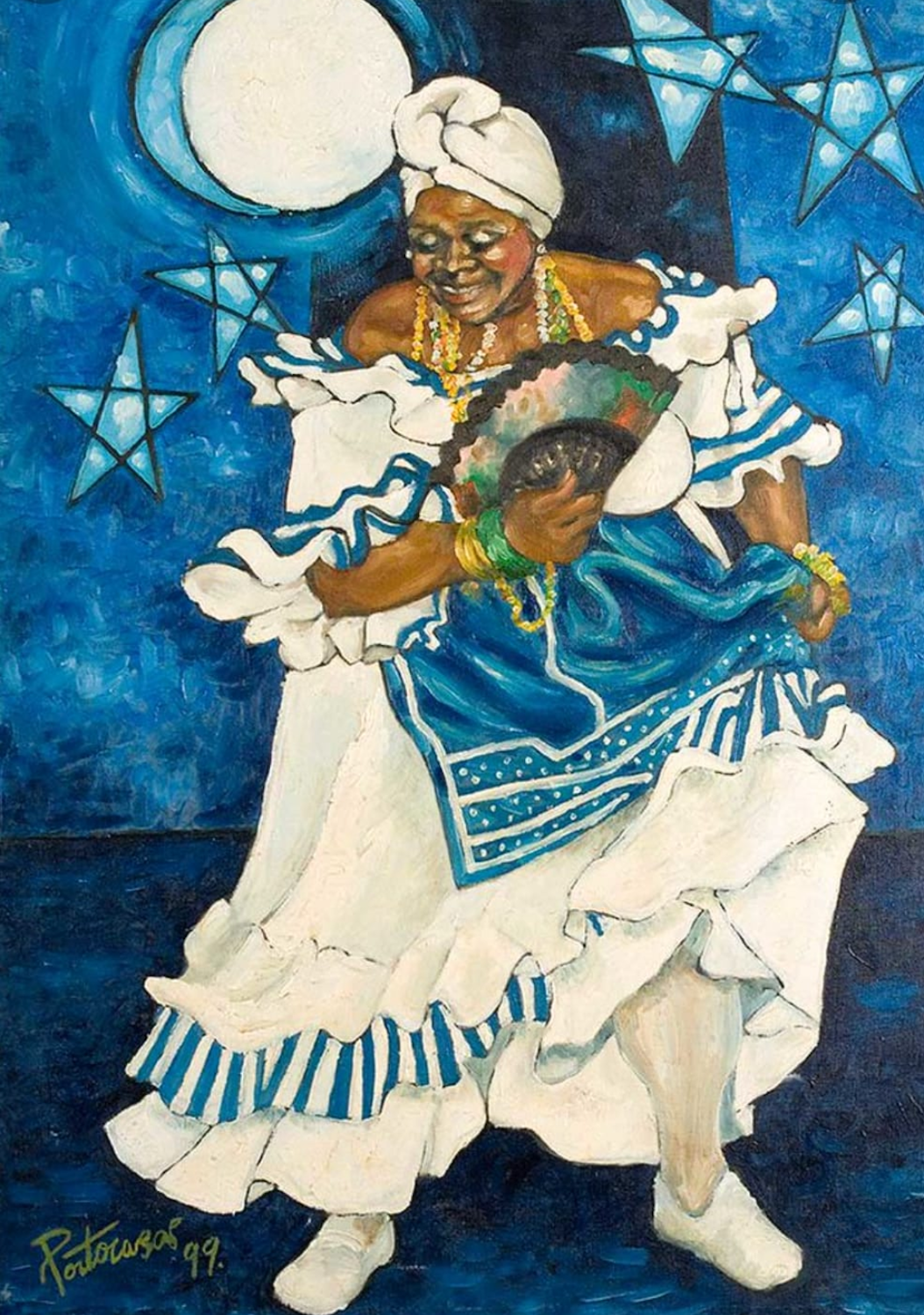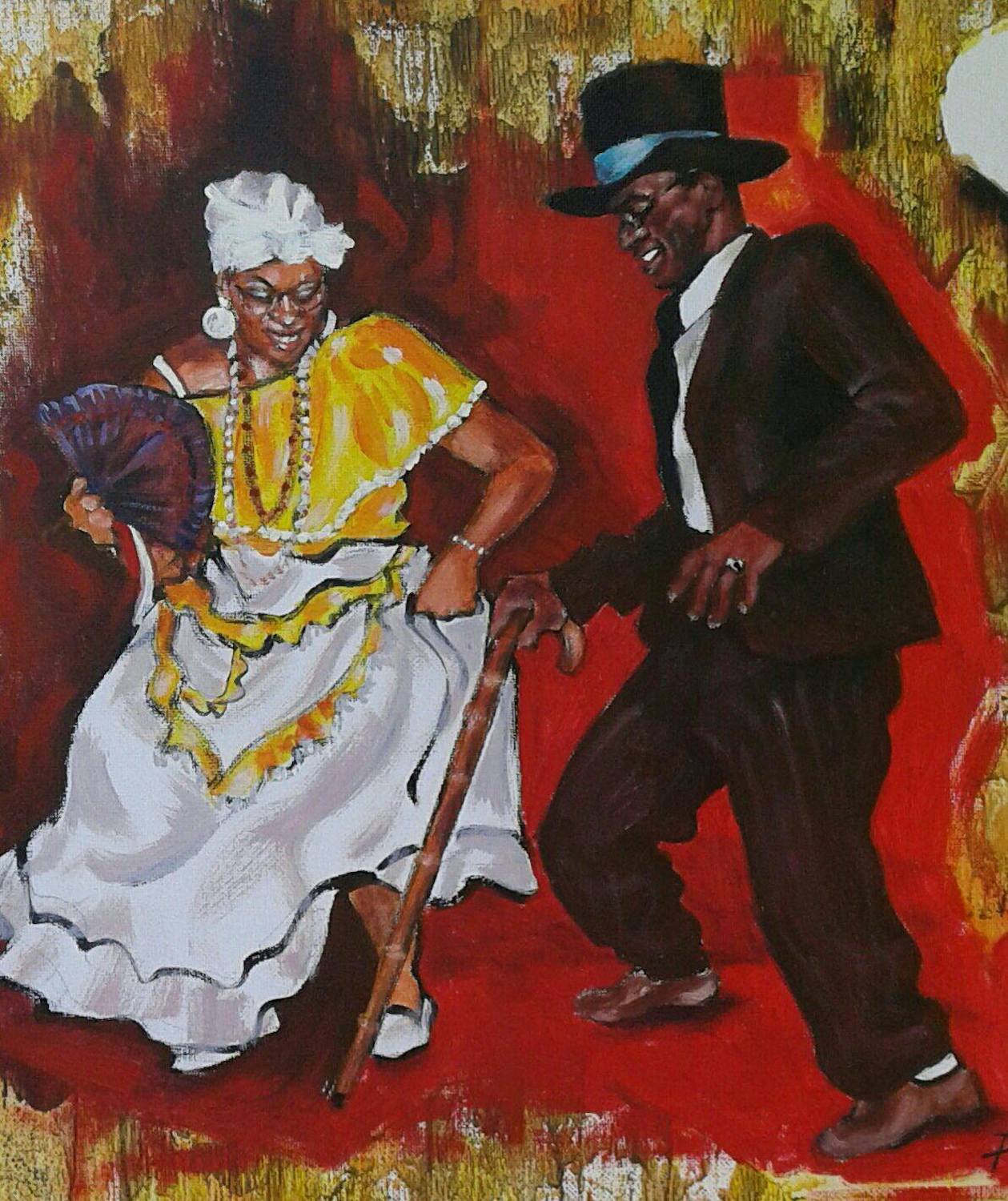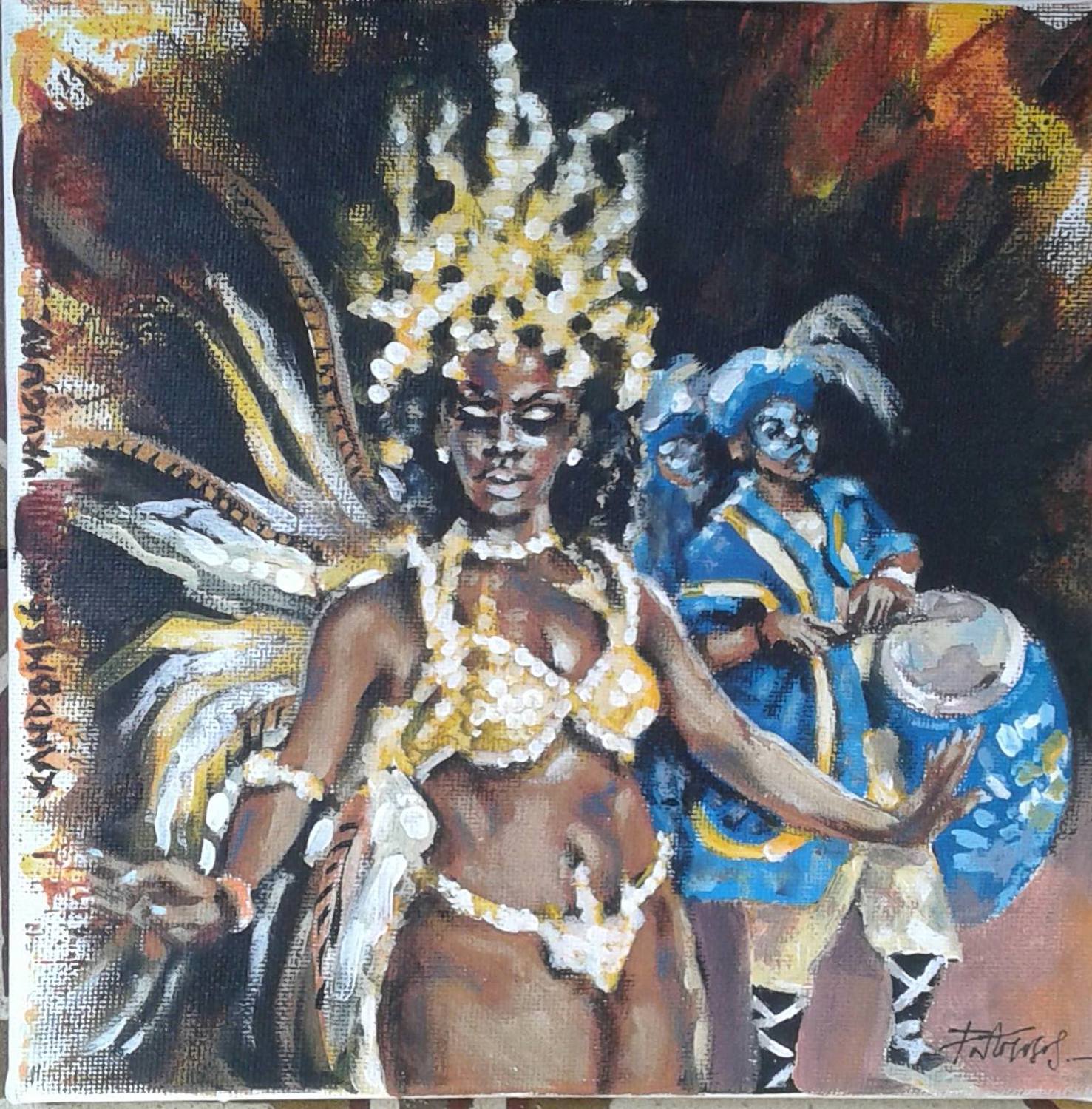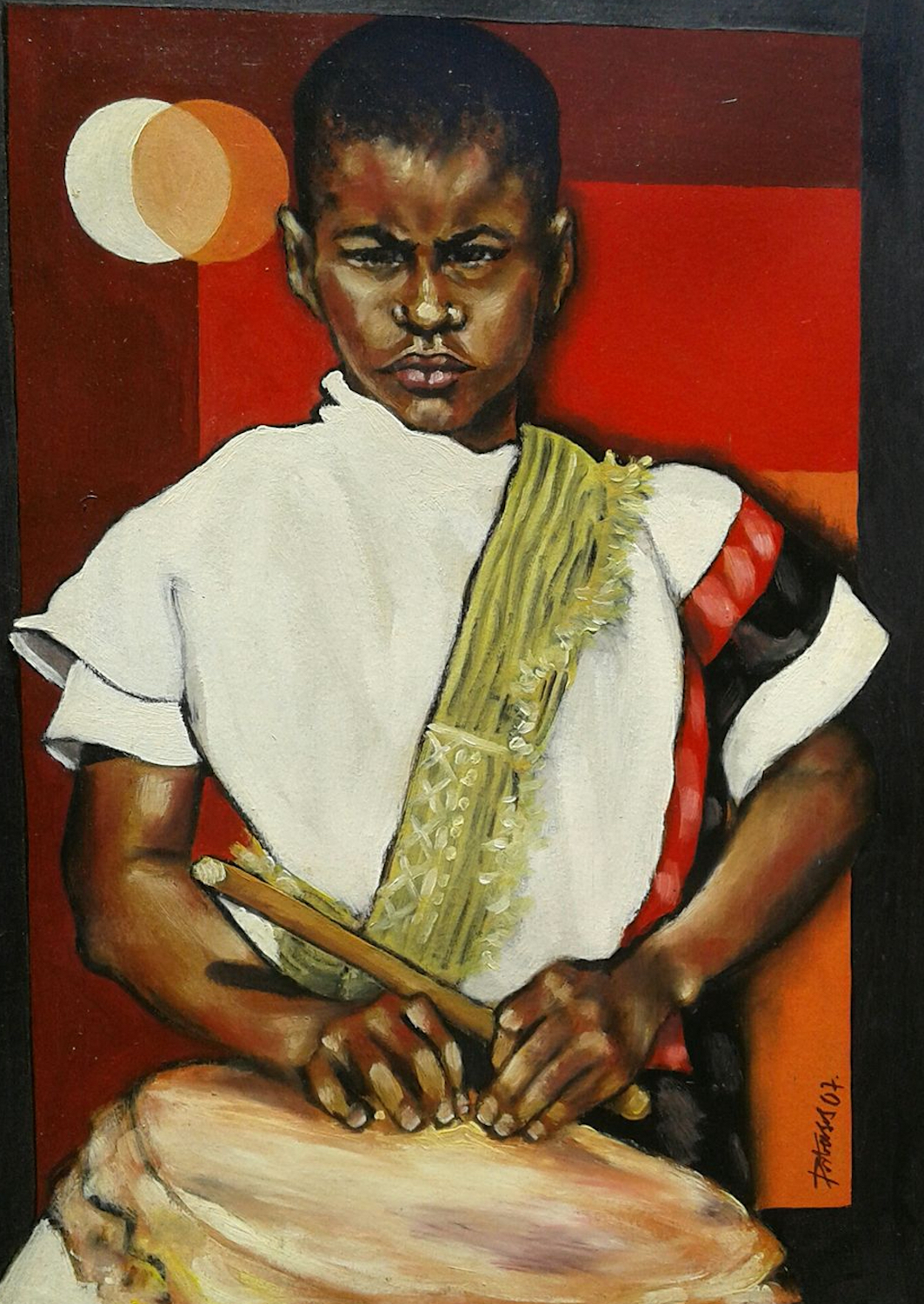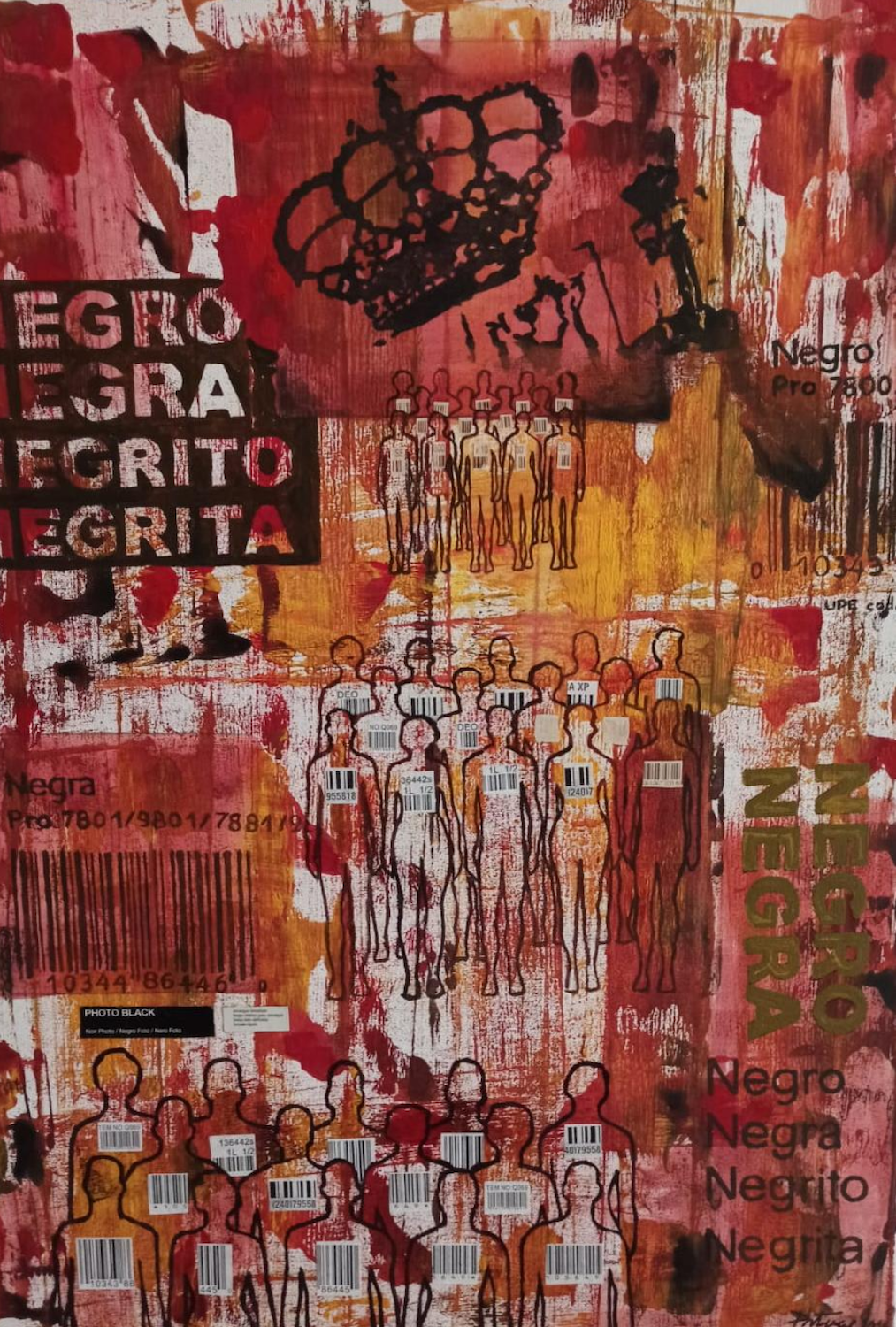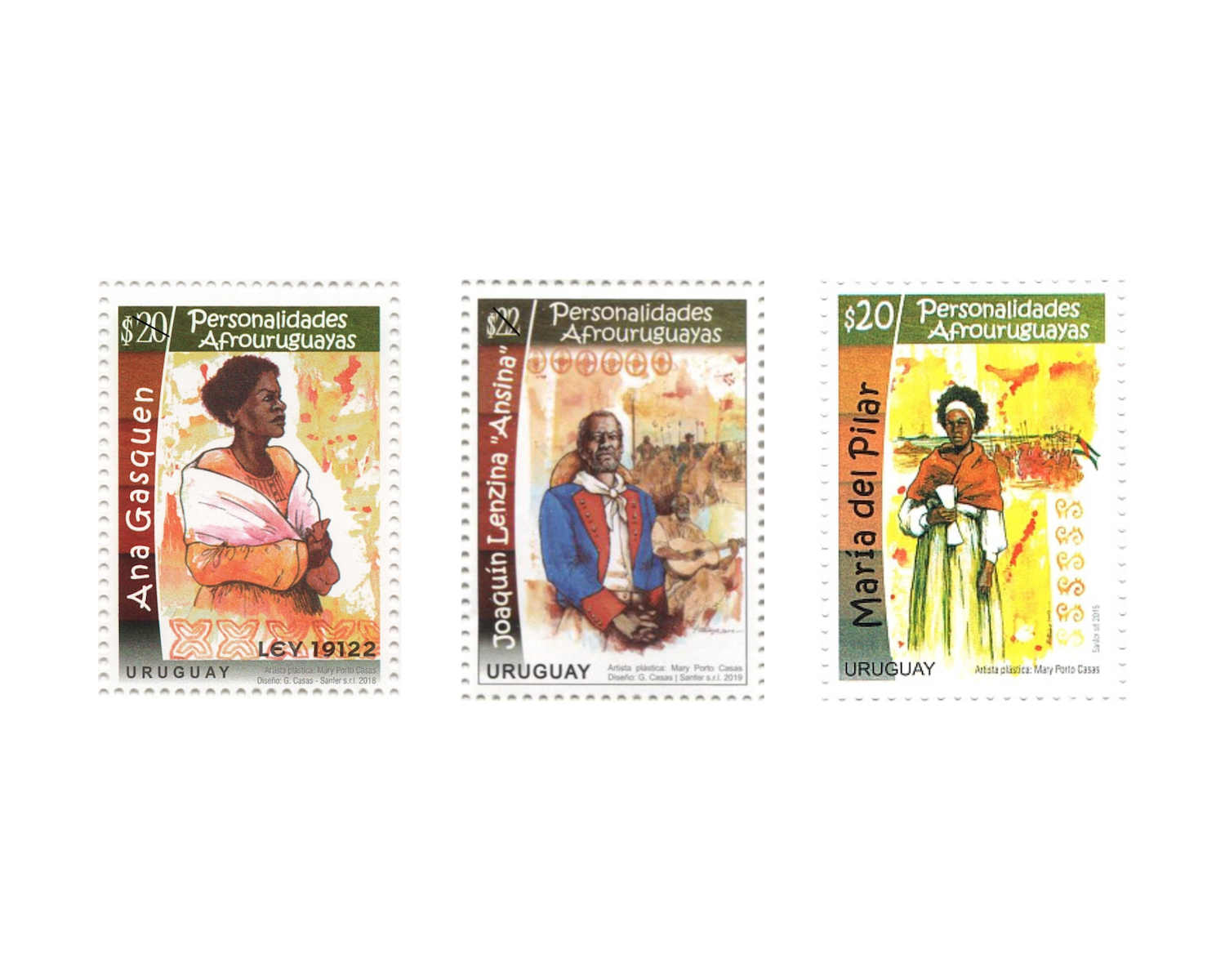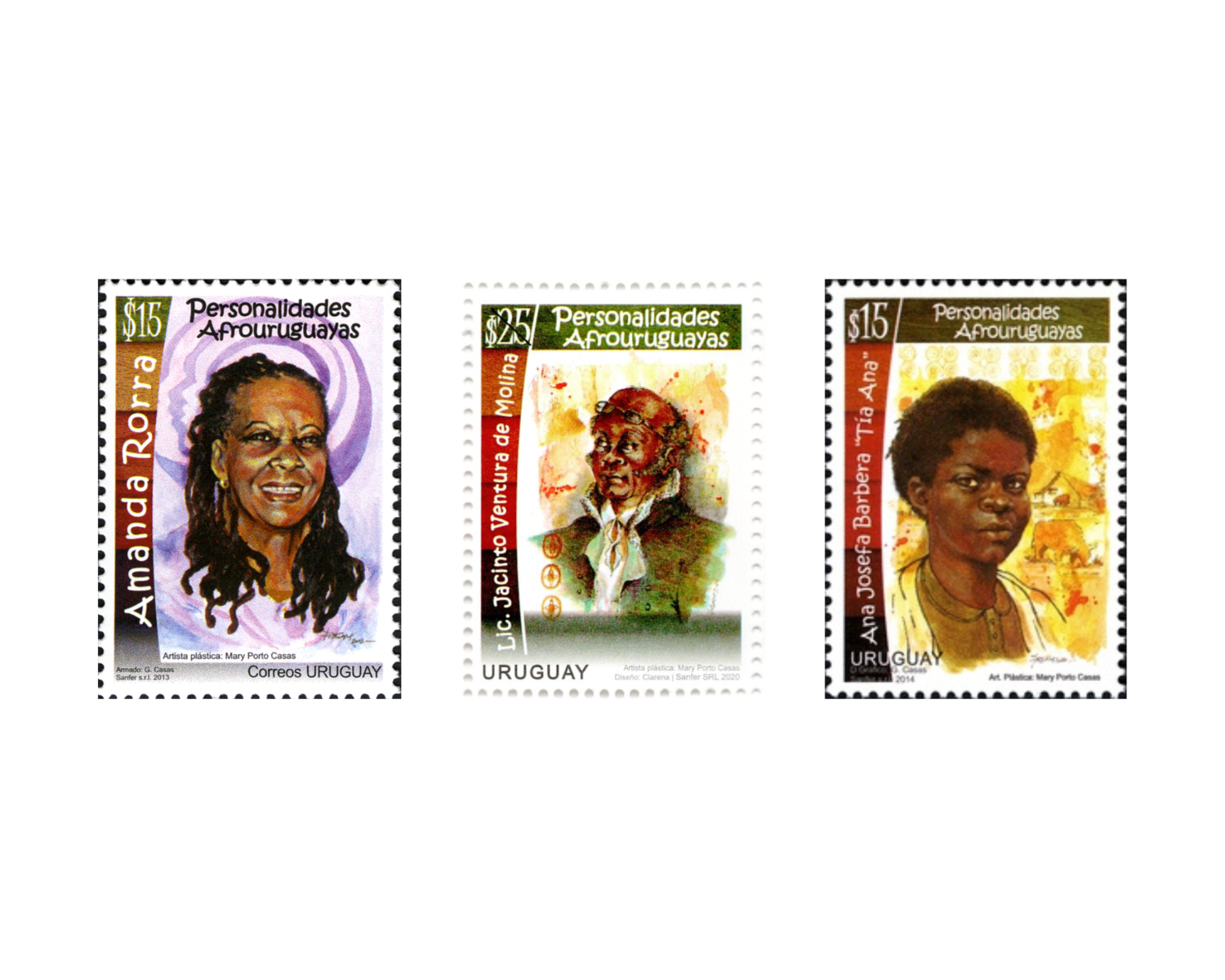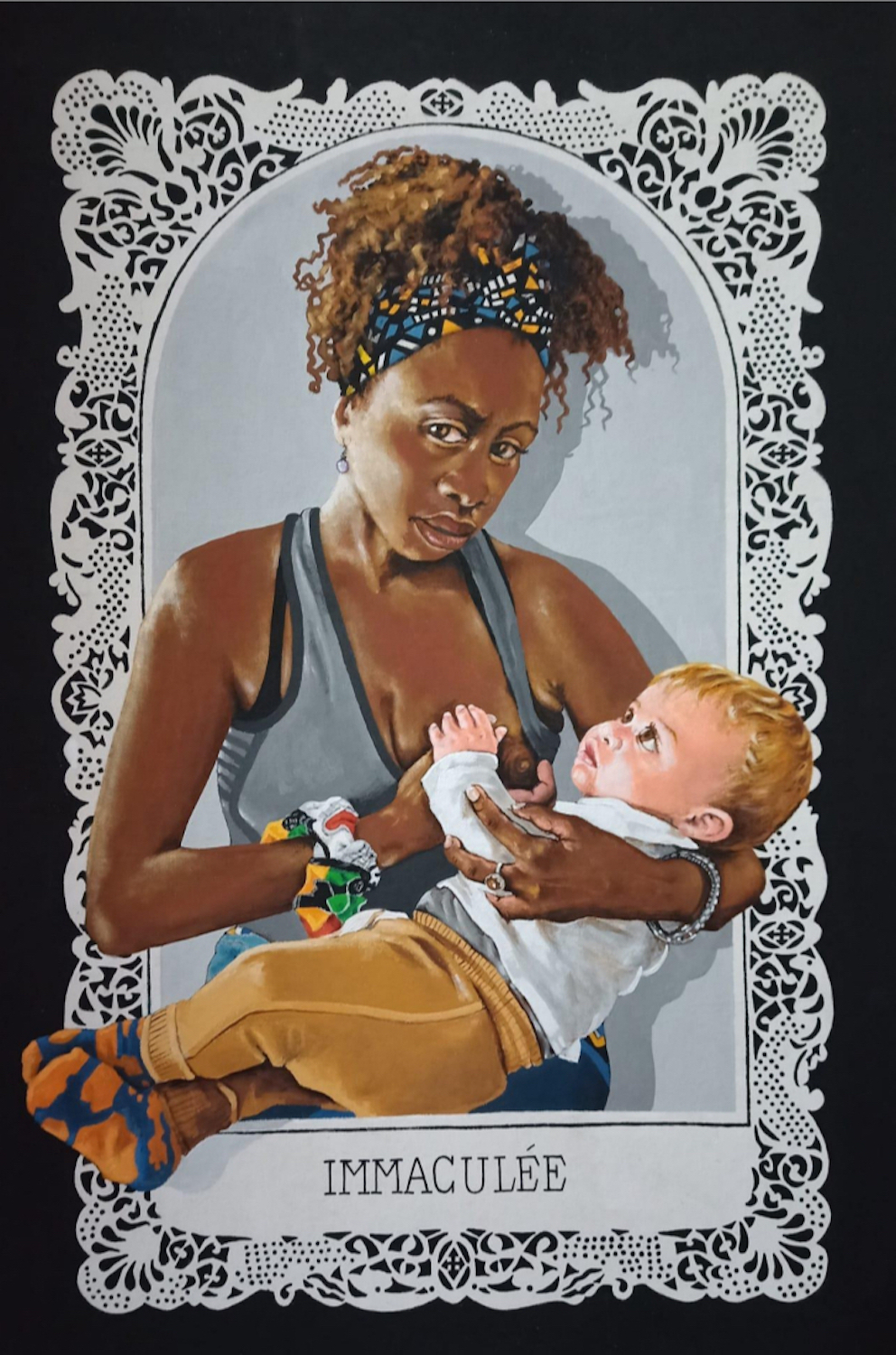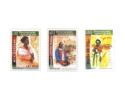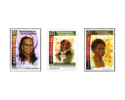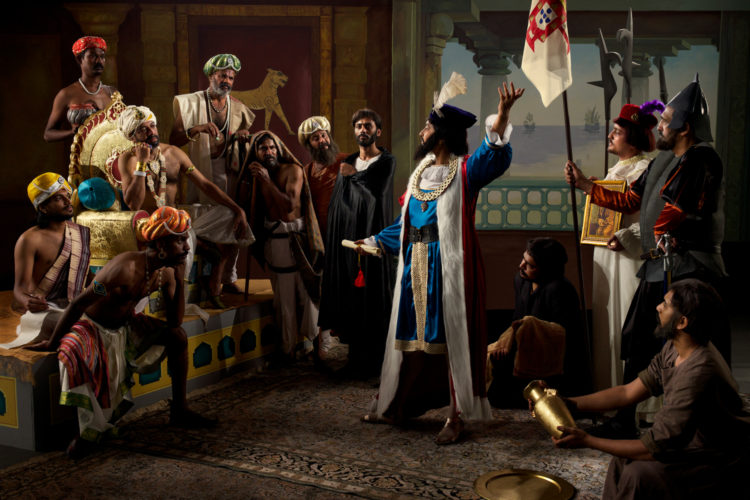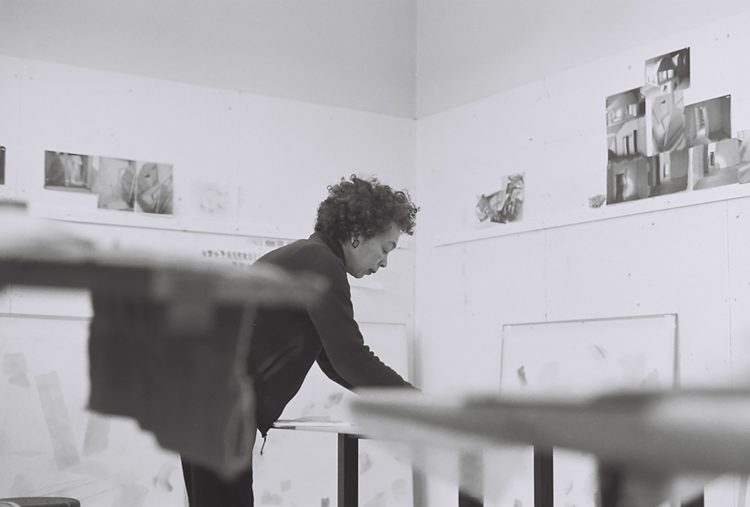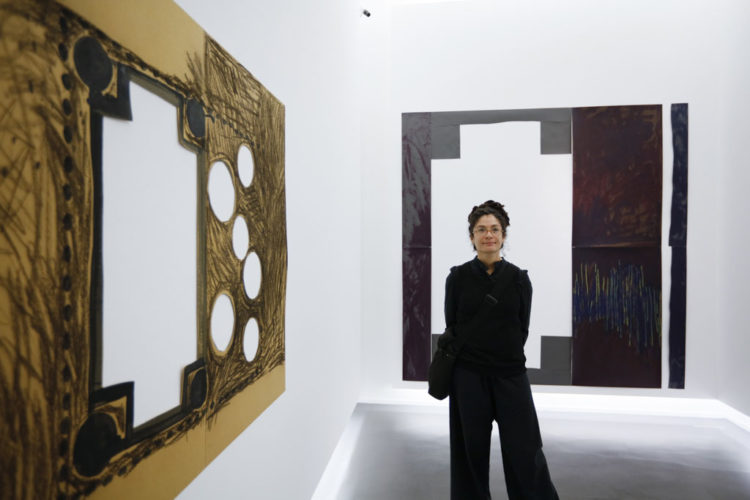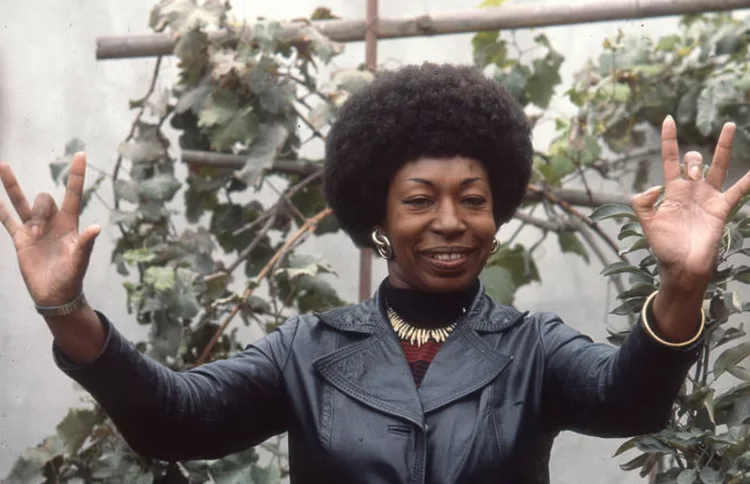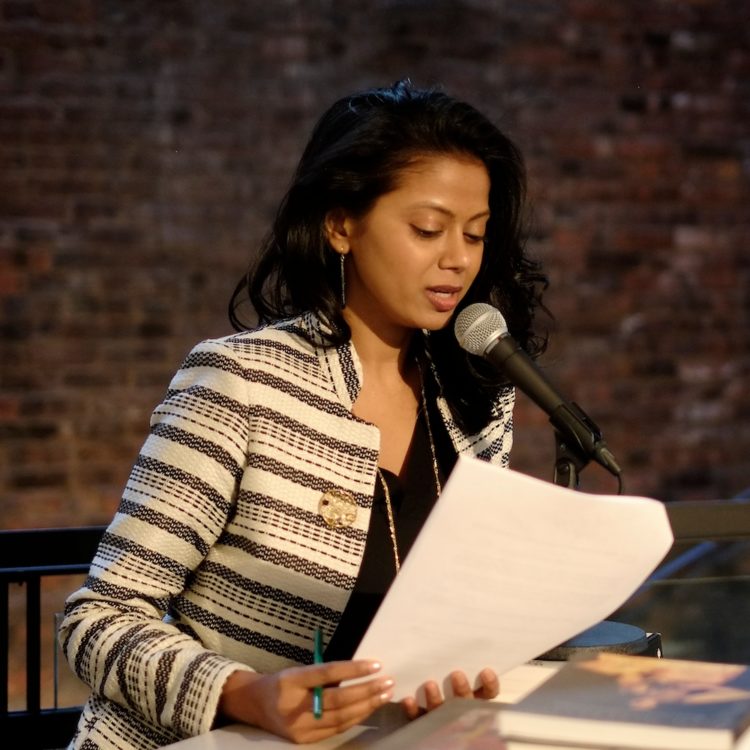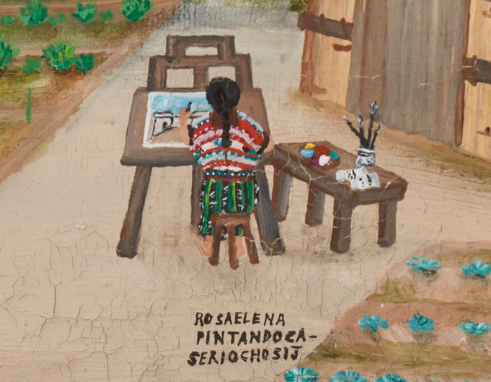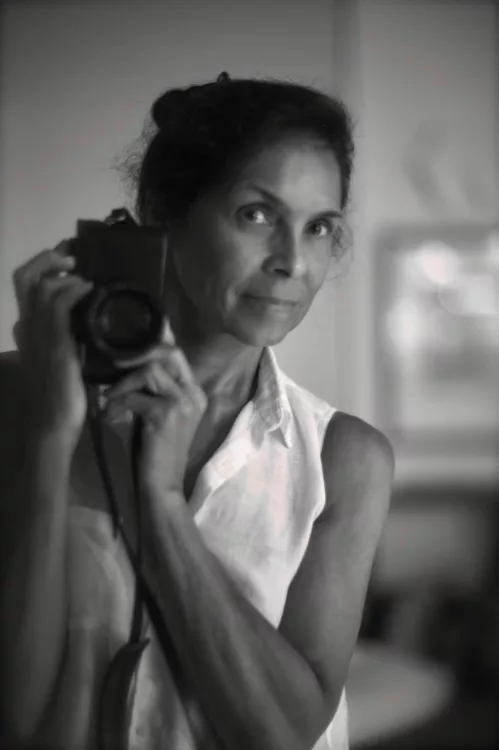Mary Porto Casas
Frega, Ana; Duffau, Nicolás; Chagas, Karla and Stalla, Natalia (Coord.), Historia de la población africana y afrodescendiente en Uruguay, Montevideo, Facultad de Humanidades y Ciencias de la educación; Ministerio de Desarrollo social, 2020
→Hug, Alfons and Cruz, Alejandro, 4ta Bienal de Montevideo: Travesías Atlánticas, Montevideo, Fundacion Bienal de Montevideo, 2019
→Colectivo COCO, “Porto Casas, María Esther”, Archivo X, 2019
Apertura, 51° Premio Montevideo Artes Visuales (PMAV), Centro de Exposiciones SUBTE, Montevideo, October 2023–January 2024
→Travesías atlánticas, IV Biennial of Montevideo, Montevideo, October 2019–December 2019
→Personalidades Afro en la Filatelia Uruguaya, Casa de la Cultura Afrouruguaya, Montevideo, October 2018
Uruguayan visual artist.
María Esther “Mary” Porto Casas is a multidisciplinary artist whose work centres on the experience of Black women and the culture of Afro-Uruguayans. Using a decolonial approach, her artworks address the intersection of racism and sexism, and the invisibility of Black people. She has been actively involved in Afro-Uruguayan activist groups since the 1980s, as a coordinator, educator and public speaker.
M. Porto Casas studied graphic design at the Escuela de Artes y Artesanías Dr. Pedro Figari in Montevideo in the late 1970s. As a graphic designer, she has worked for the newspaper Últimas Noticias and the culture magazine Dossier. She has also illustrated several books focusing on Afro-Uruguayan history and culture. M. Porto Casas began her artistic practice as a self-taught painter and printmaker, later expanding to other mediums and practising alongside Gustavo Alamón (1935–2020), Alejandro Cruz (1975), Fernando López Lage (1964) and Federico Arnaud (1970). M. Porto Casas has been part of numerous individual and group exhibitions around Uruguay, including the National Library, the Legislative Palace of Uruguay, the SUBTE Exhibition Center and the Museum of Migration, amongst others.
In 2011, the Correo Uruguayo (the Uruguayan National Postal Administration) commissioned her to create a series of postmarks and stamps, which included portraits of historical Afro-Uruguayan figures previously ignored, such as Ana Josefa Barbera, María del Pilar and Ana Gasquen. Since then, M. Porto Casas has collaborated with the institution on over thirty stamps, some of which were exhibited in 2018 at the Casa de la Cultura Afrouruguaya in Montevideo.
The installation Neghadas (2013) places the audience in the shoes of Black women and encourages them to reflect on the power of language and its use to denigrate discriminated groups. The title of the work is a play on words using the words “negada” (denied) and “hada” (fairy), in a direct reference to the lack of Black representation in toys and media targeted at girls. Visitors are invited to enter a small cubicle, sit and listen to a recording of insults that reference the hair and skin of Black women. Microaggressions are further explored with El término (2016), which centres on “that term” [negro, negra, negrito, negrita], a word that is still in the 2020s not considered pejorative by many Uruguayans.
M. Porto Casas was selected for the 4th Montevideo Biennial (2019), curated by Alfons Hug and A. Cruz. There, she presented Mea Culpa (2019), a triangular triptych that questions the creation of narratives around la Conquista de América and the transatlantic slave trade. In 2023 she was awarded the 51st Montevideo Prize for Visual Arts (PMAV) for the painting Immaculée (2023). Using the iconography of the Madonna and Child, this work brings forth the stories of enslaved black women forced to act as wet nurses for white families. By dressing them in contemporary outfits, M. Porto Casas highlights the perpetuation of similar roles in the modern Americas.
A biography produced as part of “The Origin of Others. Rewriting Art History in the Americas, 19th Century – Today” research programme, in partnership with the Clark Art Institute.
© Archives of Women Artists, Research and Exhibitions, 2024


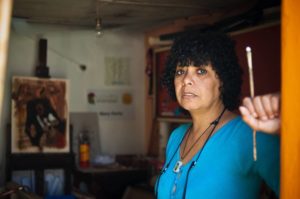
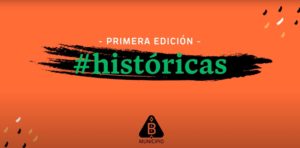 Mary Porto Casas – Retratista de #Históticas | Municipio B Montevideo, 2021 (Spanish)
Mary Porto Casas – Retratista de #Históticas | Municipio B Montevideo, 2021 (Spanish)  Entrevista a Mary Porto Casas | Municipio D, 2016 (Spanish)
Entrevista a Mary Porto Casas | Municipio D, 2016 (Spanish) 